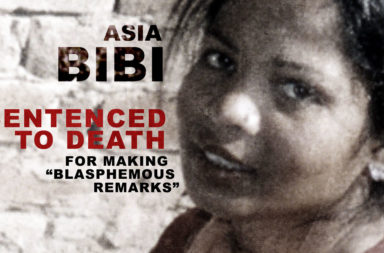Being Christian may be blasphemous!
In Pakistan, a pregnant Christian woman and her husband were pushed into the blazing kiln where they worked. They burnt gorily to death, and their four children are now orphaned.
They were allegedly accused of blasphemy. In Pakistan, they weren’t the only victims.
According to sources, approximately 700 Christian girls are kidnapped every year. Their fate is often riddled with misfortune, as they are then raped or even forced into marriages with Muslims. In March 2016, Taliban’s Jamaat-ul-Ahrar carried out a suicide attack in the Gulshan-e-Iqbal Park in Lahore, claiming to target Christians celebrating Easter. Over 70 people were killed as a result of this gory attack, and over 340 wounded.
A year earlier in March 2015, two churches were bombed in Pakistan’s Lahore city, killing 25 and injuring several others. In fact, the attack was so inhumanly strategized, that it aimed to kill Christians who were attending Sunday morning mass in church.
Prior to this, about 80 people were killed by bombers at a church in Peshawar city in 2013, which was considered the deadliest attack in Pakistan targeted at Christians – until the worse attack this year.
Ironically, Christians constitute less than 2% of Pakistan’s population – yet they are ‘threatening’ enough for militants to attack them.
What is the reason behind the violence against Christians in Pakistan?
Ironically, most Christians being targeted in Pakistan are not American or European – they are South Asian- origin people who were Hindus a few generations ago. Their forefathers adopted Christianity most possibly during the British colonial rule, so an attack on Christians in Pakistan is indeed an ironic situation.
Cecil Shane Chaudhry, executive director of the Christian NGO National Commission for Justice and Peace, a Christian NGO said, “There is a growing sense of insecurity among minorities in Pakistan, and whoever is not a Muslim is not safe in this country.”
The main framework used to target Christians in the country, is the ‘blasphemy law.’
In fact, popular opinion suggests that the recent suicide attacks targeted at Christians stems from tension surrounding the blasphemy law. Extremist police officer Mumtaz Qadri, had assassinated a governor who was strongly opposed to the blasphemy law. Qadri was then handed a death sentence for his crime, but his execution angered extremist groups, which is believed to be the main trigger behind the suicide bombing attack in Lahore earlier this year.
According to Shamoon Gill, a Christian activist, “The Christian community had the feeling that there would be backlash from Qadri’s execution, especially on festivals like Easter.”
However, persecution of Christians seems to be much more deeply embedded in the society than this issue. Recently, a two-year-old Christian boy was shot dead at point blank range because of an argument between his father and his father’s employer. Whether or not this incident is related to religion; it definitely demonstrates that religious minorities, especially Christians, are under threat in Pakistan. It is clear that minorities do not have the possibility of professing their religion or faith fearlessly.
It is truly unfortunate that in the political tension between the radical ‘Islamic’ ideals propagated by the Isis and their opposition to the West and its culture; it is the South Asian religious converts to Christianity, who are caught in the crossfire.
However, not all hope is lost for peaceful brotherhood between Muslims and Christians. In May 2015, London’s first elected Muslim Mayor Sadiq Khan took his oath into office, which shows that people still believe in unity amongst religious diversity.
Additionally, Muslim farmers in Pakistan recently helped build a church for their Christian community members.





